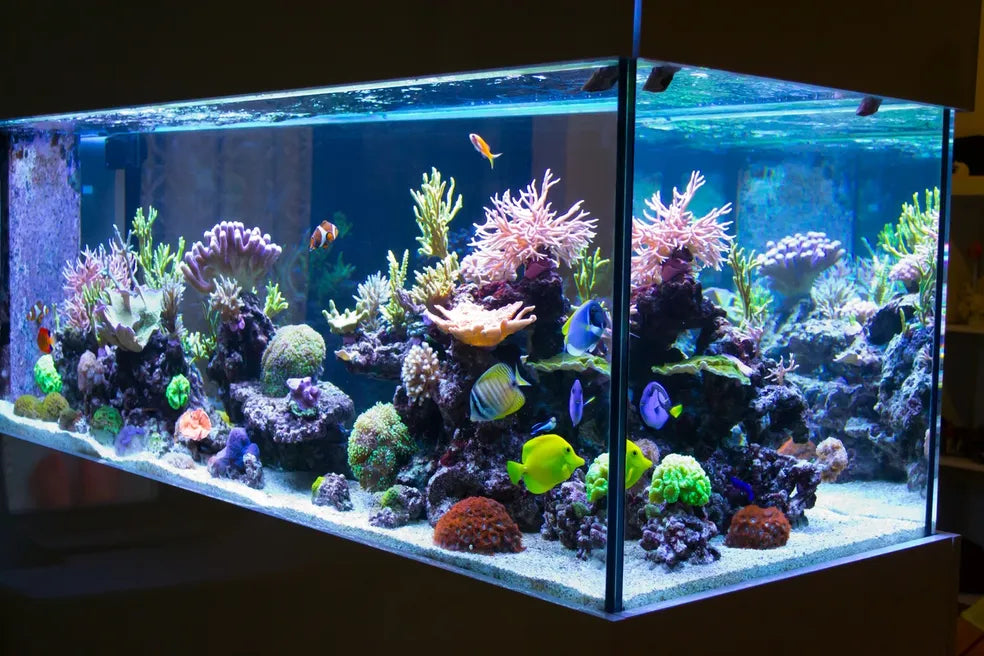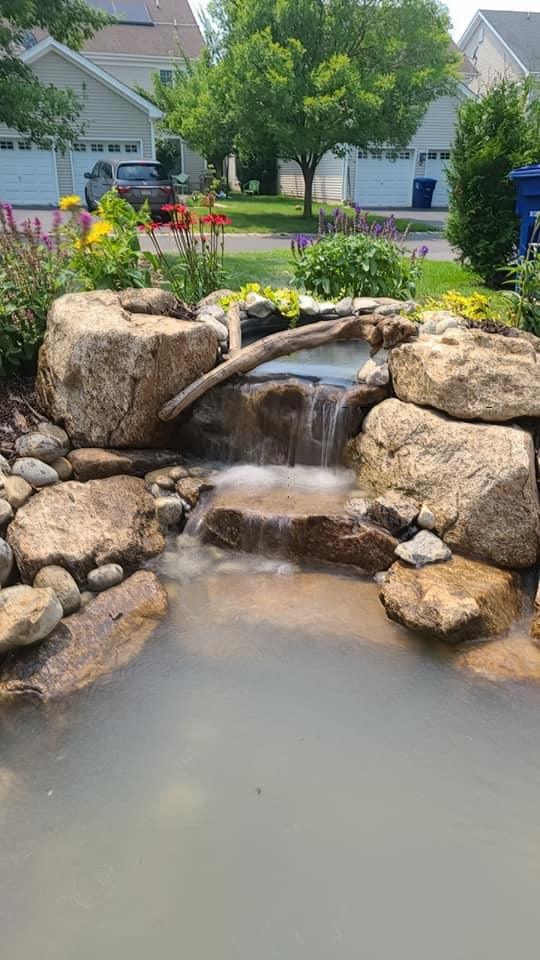
Brightwell FerroxiPhos-G - Uniform-graded Granular Ferric Oxide for Phosphate Control in all Aquaria 600 g
BAFOXG600
- In stock, ready to ship
- Inventory on the way
Overview
Directly and efficiently removes reactive phosphate from aquarium water.
Also removes silicate and phosphate-based organic material from aquarium water, often resulting in improved water clarity (particularly in aquaria with heavy bioloads).
Safe for use in all freshwater and marine aquaria, including planted and reef systems.
Technical Background
Phosphate, while required in miniscule amounts by living organisms for proper functioning, can indirectly negatively impact the overall appearance of an aquarium system if it is allowed to exist at a concentration measurable by most aquarium test kits (e.g. >0.05 ppm); in order for this impact to occur, other undesirable substances must be present in varying concentrations, however these substances are rarely limiting in the typical marine aquarium. Because of this, elevated phosphate concentrations, whether sporadic or chronic, should be combated. FerroxiPhos-G provides a solution to elevated phosphate concentrations by binding the reactive ("free") form of the molecule and making it unavailable for biological uptake. This method of treatment may be used as needed and/or on a continual basis to maintain an immeasurable phosphate concentration in a marine aquarium. FerroxiPhos-G also binds phosphate-laden organic dissolved material, including molecules that discolor water, as well as silicate.
While FerroxiPhos-G provides a workable solution to potential phosphate-related problems, it should not be seen as an alternative to proper and sensible aquarium husbandry. Aquaria with extremely-low to immeasurable reactive phosphate often appear more pristine than those in which phosphate is allowed to persist in an elevated concentration. Feeding aquarium inhabitants sensibly, limiting the use of organic-based supplements and additives, use of a high-quality synthetic aquarium salt blend, and performing water changes/replacing evaporation with purified water are all important aspects of phosphate control. Additional means of limiting phosphate are maintaining a culture of macroalgae in the system to naturally deplete phosphate and other substances, and/or the use of an effective and well-maintained protein skimmer.
Instructions and Guidelines
FerroxiPhos-G should be housed in a media reactor, canister filter, or fluidized-bed reactor with a means of controlling water flow through the media bed, and with a pre-filter in place to restrict particulate material from entering the reaction vessel. Follow the reactor manufacturer's recommendations for water flow rates. Moderate water flow will discourage the accumulation of latent organic material in the media bed, itself, and will improve overall results. Prior to use, rinse media in sufficient freshwater to rinse any fine particulates away; discard the rinse water. When using in reef or planted aquaria to which no previous phosphate-adsorption media has been administered, it is recommended that ~1 g per 5 US-gallons be used for the first week; this results in a gradual decrease in the phosphate concentration, which permits photosynthetic organisms and their symbionts to adjust to the changing water chemistry (decreasing the concentration of phosphate too quickly can have a negative impact on these organisms). Subsequent dosage of the media can be increased on a weekly basis to a final ratio of ~1 g per 1 US-gallon. Each isolated aquarium system will have different requirements, and the most efficient use of this media will rely upon regular testing for phosphate with an accurate test kit to ensure that the mass of media being employed is suitable for the system requirements. Correspondingly, the length of time to which the media will remain reactive is dependant upon the total amount of free phosphate in the system, as well as the rate of water flow through the media and the rate of phosphate input. In low-nutrient aquaria, it is not uncommon for several months to pass before the media has become exhausted and must be replaced.
The concentration of available phosphate in marine aquaria should not be allowed to exceed 0.05 ppm for any lengthy period of time; available phosphate in the presence of other substances can indirectly negatively impact the appearance of an otherwise beautiful marine aquarium. If corals or other invertebrates appear to react negatively to the addition of the product, it may be an indication that reactive phosphate is being removed too aggressively; decrease dosage by 50% and continue treatment until phosphate concentration appears to be immeasurable.
Caution: Keep out of reach of children. Not for human consumption.
Use collapsible tabs for more detailed information that will help customers make a purchasing decision.
Ex: Shipping and return policies, size guides, and other common questions.







